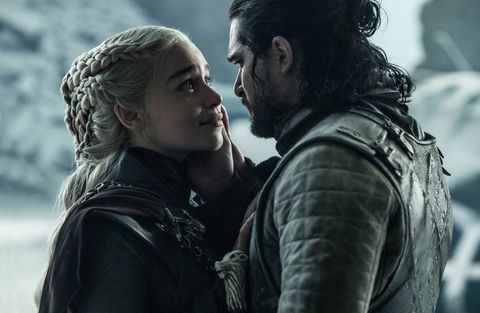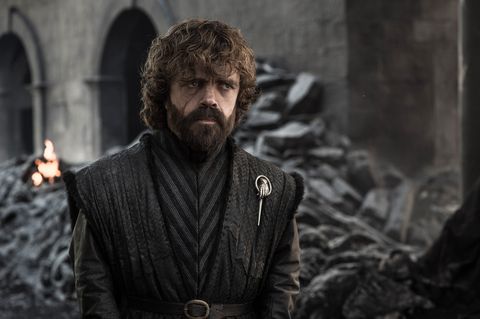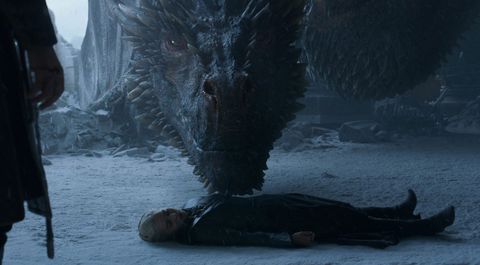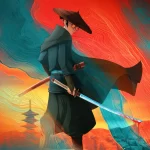Is it truly the end of an era?
I viewed the first episode of Game of Thrones in Japan, for I was still on active duty and this was my permanent duty station for the next four years. The ninth episode of the first season had aired, therefore the now infamous “Baelor” episode that contained the shocking death of a “main character” was already spoiled due to gossip at work and on the internet.
Likewise, when I woke up Monday morning in Afghanistan (my current deployment puts me ahead EST by 8.5 hours), I purposely had only one tab (HBOGO) open on my browser to avoid spoilers from the cyber realm. My viewing of the series finale has me questioning the tagline that has been spread by many professional media platforms: “An End to an Era”.
Disclaimer: Due to reviewing the finale, there will be spoilers for the final episode and various elements of the entire series.
Season 8 of Game of Thrones has vexed many fans and critics. There are complaints of but not limited to:
- Bran and the Night King’s once battle of the wits becoming nonexistent.
- Jaime Lannister’s engaging climb to redemption having a no climactic end.
- Arya Stark’s acrobatic elimination of the Night King.
- The Queen of Dragons’ turn to being equally as insane as her father the Mad King.
A show of this magnitude, which is derived from literary works of even higher complexity, is bound to attract criticism. My fellow HBOWatch reviewers have craftily slipped in their assessments while analyzing the final episodes of this season. I won’t pontificate on my grievances with this season; instead focusing on the unfolding and conclusion of the final television entry (two books are still scheduled to be published) of the A Song of Ice and Fire saga.
“The Iron Throne” is the name of the finale, and the episode starts immediately after the aftermath of Daenerys Targaryen’s siege of King’s Landing. Throughout the series, Daenerys has touted herself and sometimes proved herself to be a liberator. However, evidence has suggested as early as the fiery end to Season One that she would be a derivative of her father ‘The Mad King,’ and the woman she hated the most: Cersei Lannister.
With the finale, show-runners David Benioff and D.B. Weiss take the director’s chair(s) for the third time. The opening scene is tracking shots of Tyrion Lannister surveying the carnage that his queen has caused. Yes, there are casualties that must be associated with war, but this is pure genocide. Over half of Daenerys’ kingdom is burnt rubble, and over three-quarters of the population is dead. Tyrion lethargically searches for the remains of his brother and sister while Jon Snow pleads with Grey Worm not execute the remaining King’s guard. This proves to be futile, as Grey Worm carries out the orders of his Queen with no reservations.
Inside of the Dothraki and Unsullied ranks, the victory is welcomed with no equivocations. The Dothraki have followed their Khaleesi (Daenerys is the widow of Khal Drogo, a Dothraki warrior) and the Unsullied have helped their queen stop another tyrant. But is their queen a tyrant? Daenerys gives an inspired but mistaken speech about condemning slavery, and breaking the wheel. For if anyone goes against her will, she sees this as an imminent threat. Isn’t this the very mindset of an enslaver? Tyrion, who earlier eventually found his siblings entombed underneath the materials that once housed generations of Targaryens and a short ruling of Lannisters, throws his Queen’s Hand pin on the ground in disgust of the unnecessary deaths of innocent people. The new Queen has her guards imprison her former top advisor, as a conflicted Jon Snow looks on. The wheel that Daenerys spoke of is the endless cycle of tyrants imposing their power upon the commoners.
What transpires after Daenerys’s speech, which includes a vow to release enslaved persons around the world at any cost, is one of the most profound character decisions made in television history. Yes, even with all of the stigma of this season, John Snow’s decision to kill his Queen, aunt, and lover is the final and ultimate catalyst of many catalysts that brings the series to its conclusion. Snow, before delivering a dagger to the sternum of his love, pleads with her to break the wheel by asking her to have mercy on her defeated enemies.
He finally asks: “How do you know it (the world under her rule) will be good?” What about all the other people that think they know what is good?
She responds: “Because they don’t get to choose.”
There you have it, under Daenerys, no one will have true free will. Drogon , the last of the dragons arrives and carries of the body of his ‘mother’. But before departing, and in a somewhat predictable but nonetheless crafty misdirection, he melts the Iron Throne, which is a metaphorical and literal symbol of oppression and greed.
The final half hour of the finale is all political, with the first remnants of democracy emerging on the show. Although the suggestion of allowing people to vote for rulers is laughed upon, it is decided that rulers will be chosen, not born. The choice is no other than the Three Eyed Raven himself, Bran Stark. The Dothraki and Unsullied depart, with the latter group making a deal for Jon Snow to once again be assigned for life to the Night’s Watch, as punishment for killing Daenerys. Like Jon Snow, ultimately all of the characters ended up where the audience met them in the first season. Sansa Stark rules over the North as an independent kingdom, while Arya Stark sails west of Westeros.
And what exactly is west of Westeros? No one knows, but as Westeros is a fantastical vision of Europe, and Essos is a representation of Asia, one must make the logical conclusion is that the young woman is headed to the continent of North America: The New World. And this what I have appreciated the most about the HBO series and the novels, the story manages to be tangible in all of its grandeur. Even with great works like J.R.R Tolkein’s The Hobbit and The Lord of the Rings series, one cannot truly relate to the characters’ plight, despite enjoying the story. With Game of Thrones, the world and characters have realism despite multiple gods displaying multiple abilities, dragons, resurrections, and other unbelievable lore.
The core of the story is that good people do bad deeds sometimes, and bad people do good deeds sometimes. Isn’t this the story of humankind? How many times have good intentions caused the downfall of others that are not of the same background of those in control? Think about the Declaration of Independence, a document written by ‘noble’ people in opposition to an Empire of tyranny, which declared that all men are created equal. Yet, many would think this is a hypocritical statement, after assessing the history of the new world.
The End of an Era. This statement may be true for the era of Game of Thrones, but not HBO’s era. HBO has always been the benchmark for superior programming for over two decades, and is approaching five decades of existence. With a GoT prequel on the horizon, a more faithful adaptation of His Dark Materials, a slew of returning original programming, and Watchmen, I am going to subjectively state, based off of objective evidence that HBO is just beginning a new era under AT&T leadership. Certainly this is said with the awareness that leadership as changed, and their biggest show ever has ended. But leadership at HBO has changed very often, just under quieter terms.
And I chose to mention Watchmen, not merely because it is highly anticipated and based off of a great literary source. The original Watchmen graphic novel has a quote that is indicative of HBO’s history and philosophy: “NOTHING EVER ENDS.”
Be sure to check out the behind the scenes footage of this last episode of Game of Thrones. When you’re done, why not leave us a comment below?


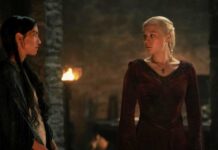
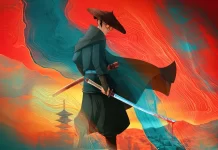















![[Book Review] The Blade Itself (The First Law Trilogy) by Joe Abercrombie](https://bendthekneegot.com/wp-content/uploads/2018/01/1516047103_maxresdefault-218x150.jpg)







